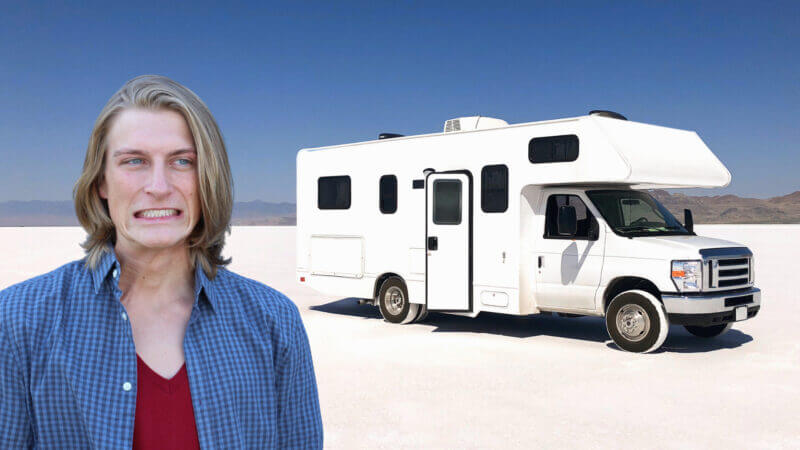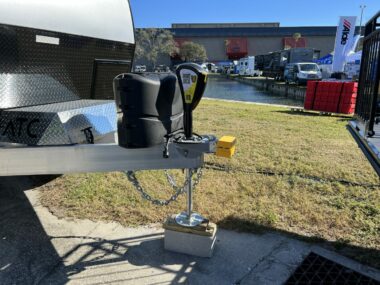Table of Contents Show
When you’re in the mood for isolation, great views, and incredible scenery, boondocking is for you! You can get away from it all and soak in the solitude of Mother Nature. But don’t leave your manners behind. Understanding boondocking etiquette is essential to a peaceful off-grid campout!
What Is Boondocking?
RVers often describe camping without water, sewer, or electric hookups as boondocking or “dry camping.” Boondocking can range anywhere from an overnight stay in a parking lot to camping deep in the woods for multiple nights.
One of the most significant benefits of boondocking is that it’s generally free. If you’re willing to rough it without hookups, you can save hundreds in campground fees.
Of course, you need to follow the basic rules of boondocking etiquette if you want to take advantage of this free camping opportunity.
What Is Boondocking Etiquette?
Boondocking etiquette is a general set of guidelines that RVers should always follow when dry camping. It ranges from respecting mother nature to being considerate of other campers.
Remember that the point of boondocking is to get off the grid and commune with nature. Frequently, that means staying in areas with as little impact on people and the environment as possible. So, sticking to boondocking etiquette is essential!
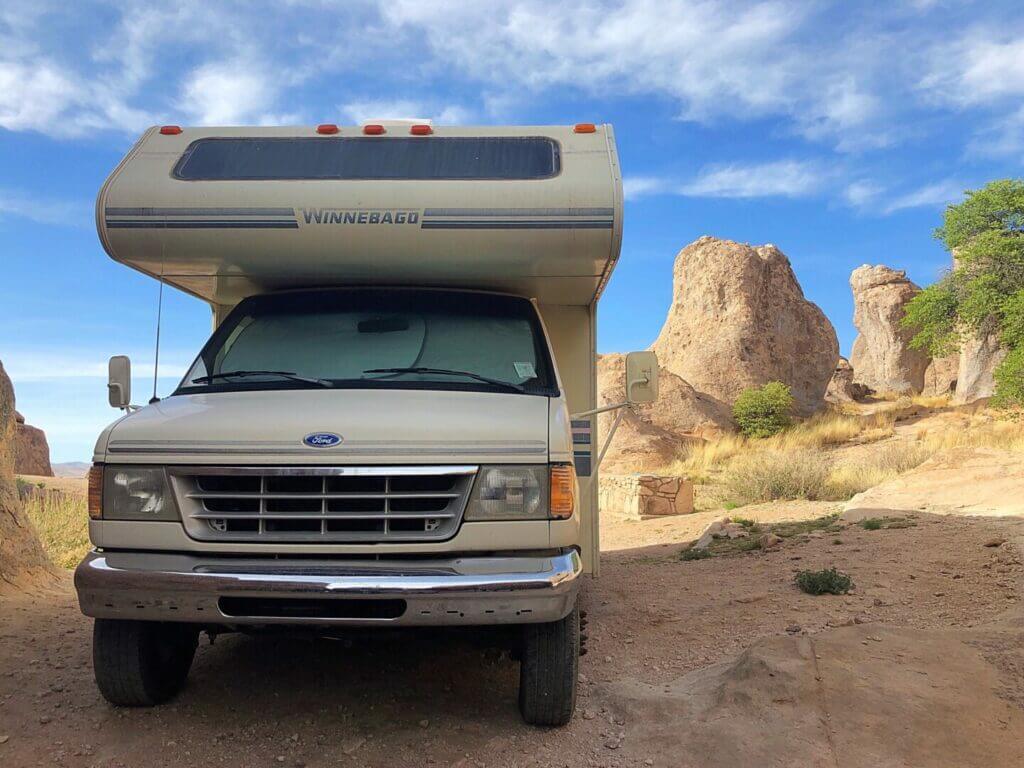
The Rudest Things You Can Do While Boondocking
Following these boondocking etiquette rules will keep you on good terms with your neighbors and out of trouble with the law. Read on to learn about the nine things you should never do while boondocking.
Not Giving Personal Space
Don’t park close to other campers if there are alternatives–even if they have the best view. Unless you’re camping in a parking lot, assume your neighbor is boondocking to take advantage of the solitude.
Keep enough distance between yourself and other established campsites to preserve your neighbors’ privacy. If you can hear your neighbors’ conversations, you’re probably too close.
Creating New Campsites
Both the Bureau of Land Management (BLM) and U.S. Forest Service have set aside designated dispersed camping lands, especially for boondockers.
Usually, dispersed camping lands are free and open for public use. But that doesn’t mean you should wander from established camping areas. It’s good boondocking etiquette to stay on designated trails and sites.
When looking for a campsite, find areas that others have already used for that purpose. Creating a new campsite or fire ring damages the land and puts these sites at risk of being shut down.
Talk to a ranger if you’re unsure where it’s acceptable to camp on public lands.
Littering or Dumping Tanks
This one seems like a no-brainer, but don’t litter while you’re boondocking. This includes both packing out your garbage and dumping your tanks.
Dumping your gray tank in the backwoods may appear harmless, but you could injure the wildlife and contaminate water sources. It’s also an offense that could eventually close the site for future camping.
Keep boondocking sites clean by following the tried-and-true mantra: “Carry in; carry out.”
Pro Tip: Are you a free spirit who has always wanted to try camping in the nude? If so, check out The Art Of Naked Camping: How and Where to Participate!
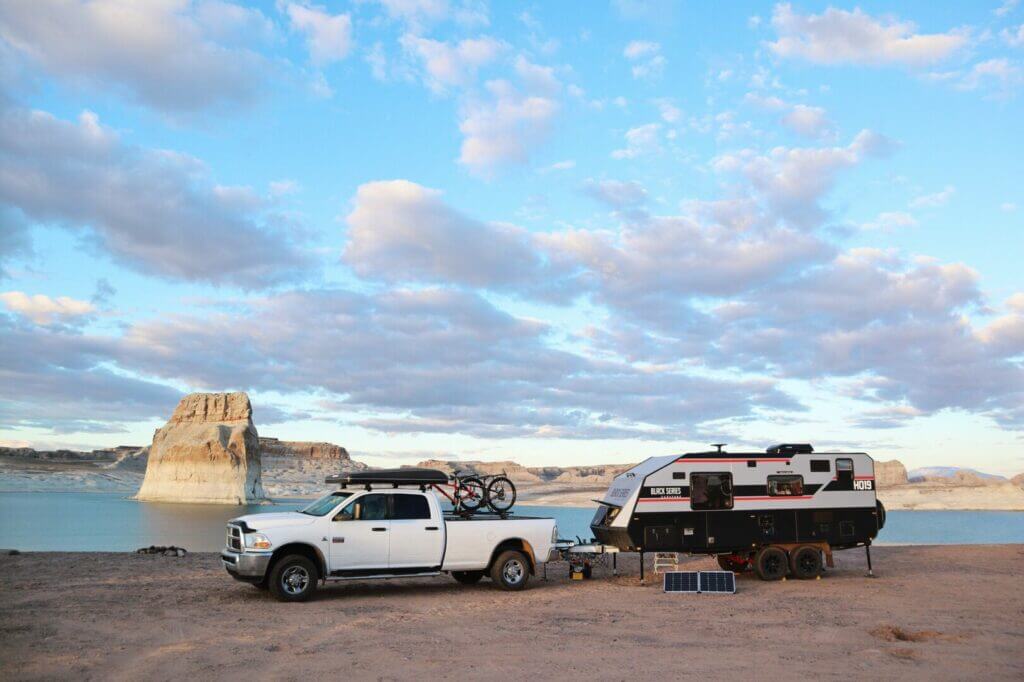
Irresponsible Pet Ownership
Don’t let your pets bother your neighbors, and always clean up after them. Not only does this rule apply to boondocking etiquette, but for everyday life too!
Just because you love your dog doesn’t mean that other campers do. Keep your pets on a leash around fellow boondockers. Lastly, don’t leave a barking dog at your RV all day while out on a hike!
Pro Tip: Need to brush up on other terms for boondocking? Read the 5 Types of Boondocking Defined.
Overstaying Camping Limits
An essential part of boondocking etiquette is following the rules established for where you’re staying.
Most federal public lands have a 14-day limit on camping in one spot. The limit for state and county lands is usually seven days to prevent damage to the area from overuse.
Overstaying the camping limits is yet another offense that can cause park rangers to shut down a site.
Disrupting the Peace
Being noisy, playing loud music, or running generators past “quiet hours” are all prohibited activities at developed campgrounds. You might be surprised to find out that these same rules apply to boondocking etiquette.
Be considerate of your neighbors. Remember that they’re likely boondocking to experience the sights and sounds of nature. Leaving bright lights on all night will put a damper on other campers’ stargazing.
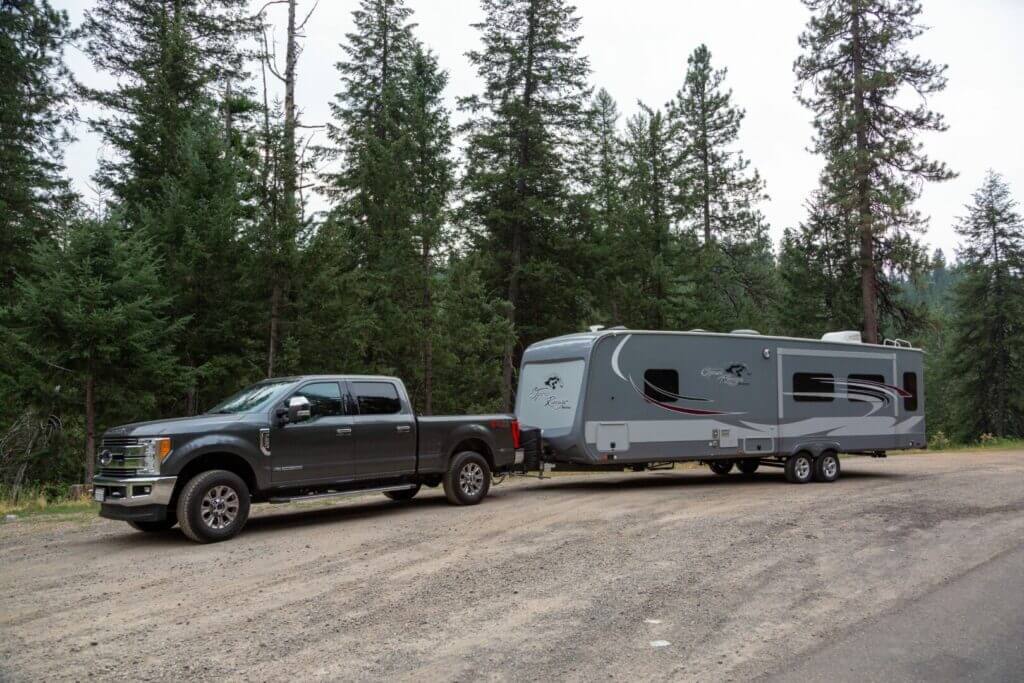
Disrupting Other Campers’ Privacy
Many people boondock for solitude. Other campers might not want you approaching them, so use discretion when visiting neighboring sites. It’s proper boondocking etiquette to respect and distance yourself from those who want it.
Giving enough space can be a challenging situation to judge. If you want to get to know your neighbors, see how they react to a friendly wave or hello. A friendly response or conversation starter means you can likely continue discussing or even telling them they’re welcome to stop by your site.
If they’re reserved or simply ignore your greeting, they likely don’t want company. Be prepared to give other campers the space they desire if they’re not interested in socializing.
Driving Fast Through Camping Areas
Driving fast through camping areas is taboo when it comes to boondocking etiquette. Not only is it dangerous, but it also leaves other campers in a cloud of dust.
You don’t want to be responsible for injuring another camper or their pets. Keep your driving speed under 10mph when around other campsites.
Pro Tip: Did you know you can stay overnight in most Walmart parking lots for free? Well, you can! But be sure to follow these rules when boondocking at Walmart.
Blocking the View
Taking a view away from other campers is just plain rude. Find another spot if someone has already parked in your ideal location.
Don’t set up in a place that blocks the view of an existing campsite. It’s pretty simple to evaluate where the best scenery is, so this should be an easy rule to follow!
Be a Boondocking Etiquette Expert
Avoiding these nine faux pas will make you a boondocking etiquette expert. Your fellow campers will love you, and you’ll preserve sites for everyone to enjoy after you.
Take your newfound knowledge and boondock with confidence. You might find that this primitive version of RV camping is right for you!




